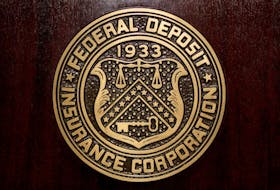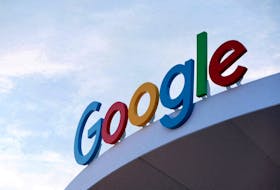To buy new or not to buy new?
That is the question.
Well, maybe one more – what about leasing?
These are questions rolling through my head as I look at my beloved 2007 Ford Focus. I’ve had it for only a couple of years, but it’s passed the tipping point where wear and tear is taking a costly toll.
New struts. New wheel bearings. A replacement gas tank. A replacement fuel sensor. The engine works well. The power windows? Not so much.
I suspect other parts are next to go – ball joints and tie rod ends being the most likely candidates.
Time to move on and look for something new. Or, something else.
New car sales in Atlantic Canada are doing well. According to Statistics Canada, they’re up to 13,883 in September compared to the previous year. Sales revenue also climbed to $499,706. P.E.I. was the only province in Atlantic Canada to decline in both categories.
Atlantic Canada also leads the country in car debt, and I’m not eager to be a part of that trend.
I spoke with Gary Howard of CAA Atlantic for some advice. He points out that buying new, old or leasing is an individual choice. Younger professionals getting started in life tend to lease because the payments are lower than a loan. Older folks may want to stay away from buying new or leasing to avoid being saddled with a financial commitment in case they have to stop driving.
I’m somewhere in the middle – looking at the distant finish line and the realization the end of a career isn’t too far off.
And, I’m not the only one.
To help out with the big picture costs, such as gas consumption, insurance and vehicle registration, CAA has a calculator on its website. This is handy information beyond any deals you get at the car lot.
Buying a slightly used car is a viable option. Howard advises having at least one mechanic look at it first and to track the vehicle to see if it has been damaged in a major accident or in a flood.
P.E.I. financial planner Blair Corkum also weighed in to help me navigate these murky waters.
Here again, it’s an individual choice based on your own circumstances.
Leasing a vehicle makes sense if your job or business requires a lot of driving and you can get a tax deduction, then go for it, especially if you’re in a higher tax bracket.
In my case, I drive from interview to interview, so that doesn’t quite meet the standard.
For the majority of cases Corkum recommends buying, especially if you want to own the car for a long time. And, buying gives you equity. If cash is tight, then lease. But at the end, you own nothing. That’s either good or bad, but you don’t have equity and you still have to start over with another vehicle.
Corkum also likes the idea of buying a slightly used. But it has to be reliable.
That’s where I’m leaning.
I long for that new car smell, but buying new and leasing just don’t seem like options right now.
But everyone is different.
If you do buy used, I’ll add a tip as a seasoned used car owner – have a good mechanic that you can trust. I have two, and they go a long way to keeping costs low.
[email protected]
Twitter.com/terry_mcn








